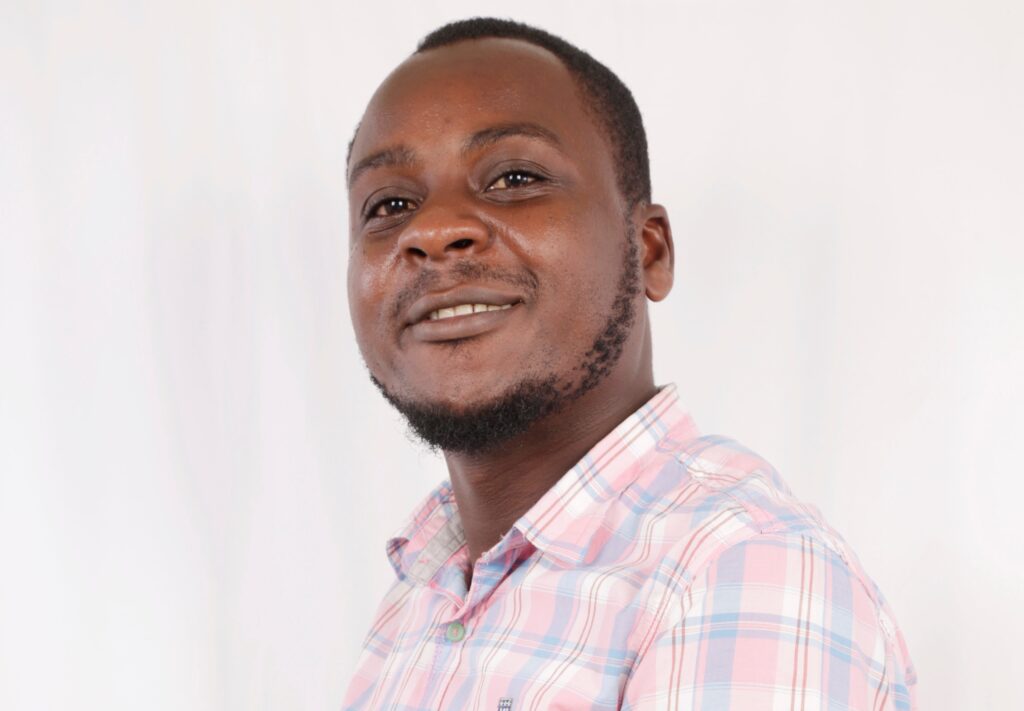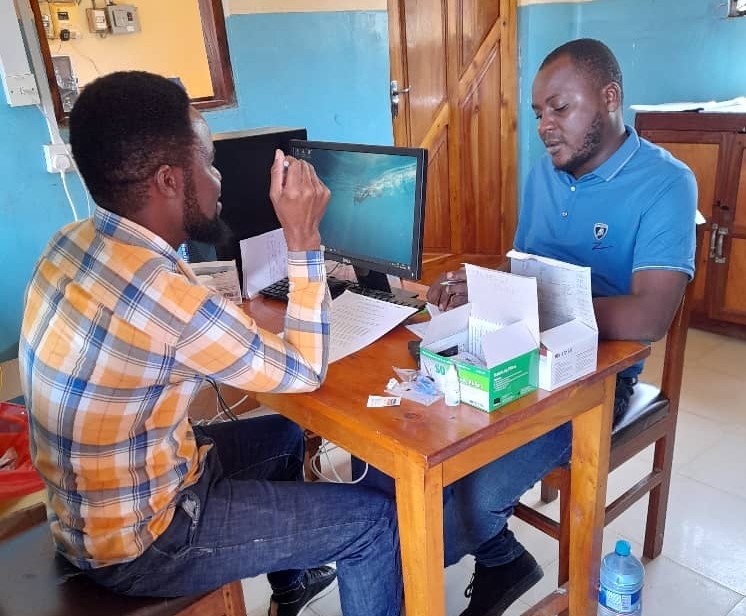Yusufu Kionga is a social scientist who has worked at the Ifakara Health Institute (IHI), a research organization in Tanzania, for the past six years. With funding from the U.S. President’s Malaria Initiative (PMI), Yusufu engages in a wide range of activities, including training of data collectors, data collection, data management, and analysis. We sat down with Yusufu to learn more about his motivation for working in the field of malaria and the role he sees this study playing in reducing malaria transmission in Tanzania.

Social scientist Yusufu Kionga. Photo credit: Joseph Madata, Ifakara Health Institute (courtesy of Yusufu Kionga)
Why did you start working on malaria?
Malaria is still a major public health challenge, especially in Tanzania—the entire population is at risk of getting an infection. I come from the Lindi Region, which borders the Indian Ocean and has many fishermen camps. The community is not well educated about malaria and mosquito nets are not consistently used to protect against malaria-carrying mosquitoes. As a result, malaria rates remain high in my community. When people seek treatment, they face limited access to high-quality health services. Health facilities often have limited resources in terms of malaria case management. As a social scientist and public health researcher, I was inspired to work in malaria research because my wish is to see my community gain a better understanding of prevention measures to help control, and if possible, eliminate malaria. My hope is that through these research and education activities, we can build a healthier community.
Can you tell us about the supportive supervision program evaluation and your role on the team?
This study aims to evaluate how, why, where and for whom the different components of supportive supervision* help improve health workers’ performance in management of children with uncomplicated malaria in health centers. This study is expected to shed light on the effectiveness of supportive supervision, inform the technical strategy at national and subnational levels, and ultimately improve malaria case management in health facilities across Tanzania.
As a researcher on the project, I helped develop the data collection tools, conducted the scoping review, trained the data collectors, coordinated field activities in the study sites, and supported data collection. I am now working on the data analysis.
[*Note: Supportive supervision is a process of helping staff to improve their own work performance with a focus on using supervisory visits as an opportunity to improve knowledge and skills of health staff. It encourages open, two-way communication, and building team approaches that facilitate problem-solving. (World Health Organization, 2020)]
What would progress toward malaria elimination look like from your perspective?
For me, malaria elimination starts at the community level. We need to ensure the community is educated about malaria prevention and treatment so they can make informed decisions about seeking timely health care. Some people wait until they have severe malaria to seek care at the health facility. When patients do seek treatment, we need to be sure there are sufficient resources available at the health facilities and that health workers are properly trained to provide high-quality care. Through the supportive supervision evaluation, we are identifying ways to ensure health workers are properly trained and have sufficient supervision to do their job well. This will help make great strides towards malaria control and elimination.

Yusufu Kionga conducts an interview with a laboratory technician at the Kagunguli Health Center in the Mwanza region, Tanzania. Photo credit: Dr. Fatuma Manzi, Ifakara Health Institute (courtesy of Yusufu Kionga).
What motivates you to keep going with this work?
The chance to make an impact. Working with IHI and on this project is something bigger than myself. I always seek ways to contribute to this project and the institution in general—to feel the sense of ownership—because I believe this work will make an impact. The Lindi region, where I am from, is one of the study sites for this evaluation, so I hope that the evaluation can make an impact there. After the study, I plan to use the knowledge I gain from this evaluation to help educate my community about malaria prevention and treatment. At the end of the day, I believe this will help better our community.
Cover photo: Yusufu Kionga conducts an interview with a parent who came to seek health care for their child in one of the health facilities in the Ruangwa district of Tanzania. Photo credit: Dr. Fatuma Manzi, Ifakara Health Institute (courtesy of Yusufu Kionga).
